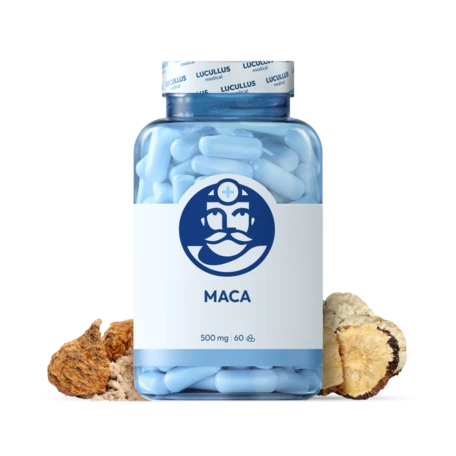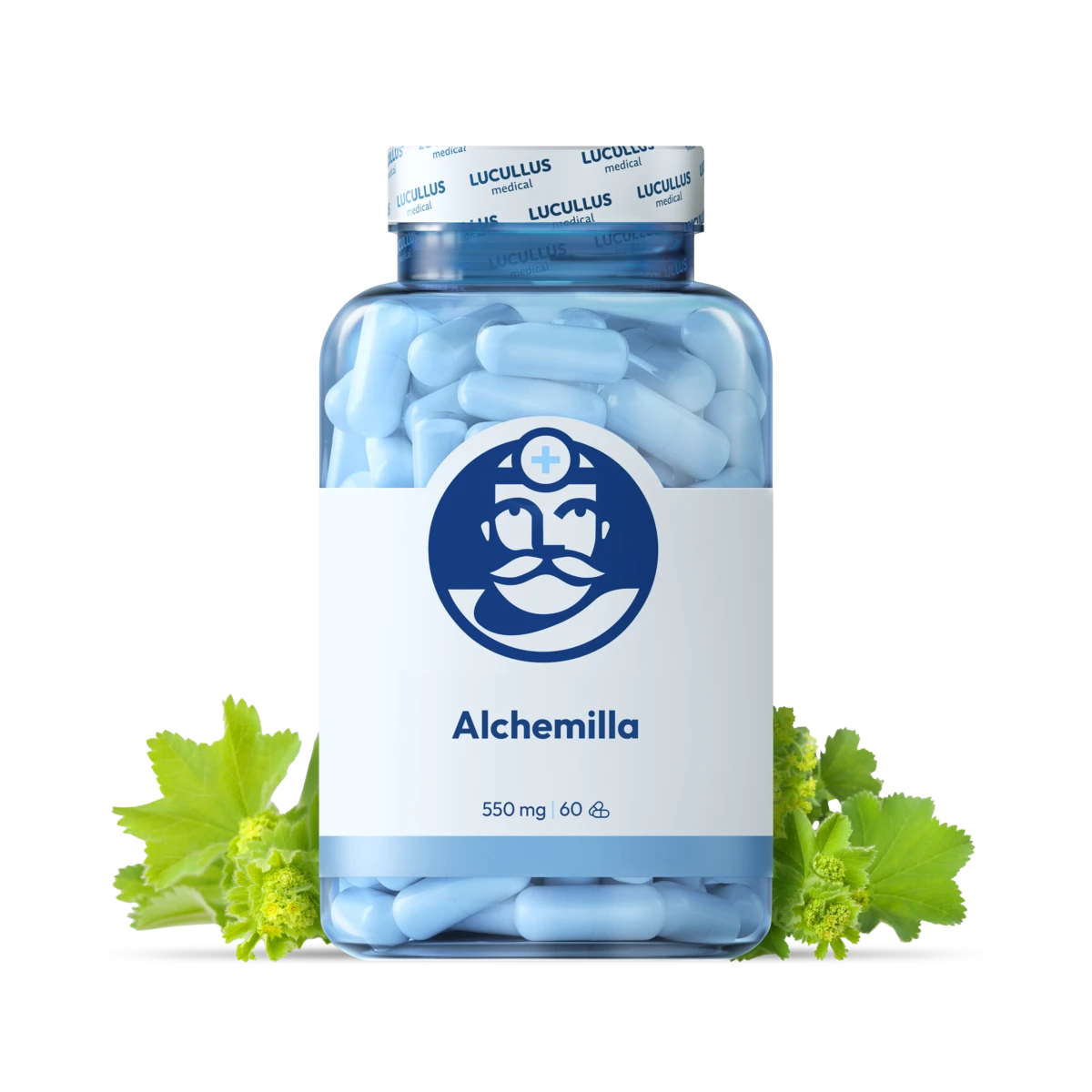
Lady's Mantle ... from the past to the present ...
Derived from the Latin word "Alchemilla" related to alchemy. Alchemists believed in the miraculous power of the water drops in its leaves 'heavenly water,' (symbolizing purity and the mystery of nature) which were supposed to help them achieve eternal youth or turn ordinary metal into gold. They devoted much attention to lady's mantle, which led not only to its naming but more importantly to the discovery of its medicinal properties. Today's world relies on the proven health benefits this medicinal plant offers.

Defining a fact: joint nutrition not only for those who have joint problems
Let's explore together the contents of this health-beneficial blend and how it works. It ensures better mobility, which is (far from) everything. Joint Pro improves a range of health specifications including inflammation, pain, stress resistance, and antioxidant capacity. The joint nutrition 𝒟𝓇. 𝐿𝓊𝒸𝓊𝓁𝓁𝓊𝓈 is created for prevention and is suitable for athletes (reduces weakness, load), seniors (addresses limited mobility - arthritis and arthrosis), persons after injuries (faster regeneration), people with overweight (strengthens joint resistance), youngsters (relieves stiffness, supports proper development).

Cordyceps - Zombie in Reality
Cordyceps sinensis - this is our zombie predator. In China, it is called "in winter insects, in summer herbs." Imagine a fungus that during reproduction in summer shoots its spores (seeds), which attach to the insect's body. It gradually grows throughout and parasitizes it, devours it from the inside out, with the insect still alive, even altering its outer appearance but still foraging until it retreats underground where it dies and mummifies. The fungus can survive in it for a longer period. The fungus literally controls the host's body, growing out of its body in summer, forming slender "sticks" 5-20 cm high. This inspired the video game series Last of Us where the Cordyceps fungus turns humankind into zombies. In real life, this video game unfolds in the actual life of insects. The victims are larvae of butterflies, large ants, spiders...

Do we need the 'sunshine' vitamin D3 only in winter?
When you feel the sun's rays on your skin, know that your body is creating one of the most important vitamins - D3, which was discovered thanks to centuries of research. The discovery of vitamin D3 became one of the most significant medical achievements of the 20th century, saving millions of lives: It was the year 1650 and in the streets of London, doctors noticed that more and more children were suffering from a strange disease called rickets (their bones were weak and brittle, legs deformed, growth slowed). It wasn't until 1919 that Dr. Huldschinsky exposed children with rickets to ultraviolet light and their bones began to heal! Three years later, biochemist McCollum discovered a substance that prevented rickets and called it vitamin D. Gradually, the existence of the most important form of vitamin D3 (cholecalciferol) was discovered.

Iron - the secret of your health and energy
Imagine your body as a factory working at full capacity, providing energy, growth, and cell repair, with iron as the fuel that keeps it running. If iron reserves are depleted, you immediately feel tired, weak, have heart palpitations, or paler skin. Other symptoms of iron deficiency include brittle nails, dry hair, shortness of breath, sleep problems, reduced concentration, cold extremities, increased susceptibility to infections, and anemia (a lack of red blood cells caused by too little iron in the body) manifesting as extreme fatigue. In anemia, the body is not adequately supplied with oxygen and tires quickly. A signal of iron deficiency may also be bruising, as this mineral plays an important role in the production of hemoglobin, which supports the proper function of platelets.

Zinc - The Fatigue Slayer
In addition to vitamins, enzymes, and various supplements, our body also needs so-called trace elements for 100% functionality. The term "trace" means that our body needs it only in small quantities. We need 10 mg of zinc daily, which is 37 times less than magnesium (375 mg). It might seem we're discussing a total non-entity. However, the opposite is true. Zinc affects more than 200 biochemical reactions in our body!






























